What’s New
Summer reading: How Starbucks Saved My Life
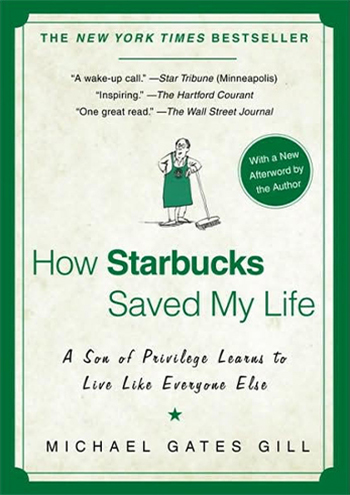 How Starbucks Saved My Life
How Starbucks Saved My Life
Michael Gates Gill
Don’t be fooled by its joking title. How Starbucks Changed My Life is an engaging memoir from Michael Gates Gill, the son of famed New Yorker writer Brendan Gill, who grew up in a mansion of 30-plus rooms, and who encountered many of the glamourous people and literati of his time in his youth: e.g., Ezra Pound, Ernest Hemingway, Jackie Kennedy. He eventually became an artistic director at the J. Walter Thompson Advertising Agency. He had a good career there until it was deemed that, in his mid-60’s, he was too old and was fired. Divorced, diagnosed with a brain tumor, he ended up living in an attic apartment, desperate for employment that offered health insurance. By pure coincidence, he was hired at a Starbucks located in a “bad” part of town.
He progressed from cleaning the bathroom to becoming a barista, along the way learning to respect, and befriend, youth from a lower-income social strata that he normally would have crossed the street to avoid during his time as an advertising executive. One of these young people was a fierce-looking ex-gang member who protected Gill one night when he was threatened by a customer who refused to leave at closing and pulled out a knife. After working at Starbucks, Gill would conclude that he preferred the company of the staff there to the corporate executives he used to interact with while at J. Walter Thompson. This is a compelling, enlightening narrative about How a Son of Privilege Learns to Live Like Everyone Else that puts a human face, and experience, to what is essentially a scathing critique of socio-economic class differences.
MIKE PALMER
Enrollment Manager
College Writing Programs
This book is part of the 2022 Berkeley Summer Reading List. Stay tuned for more weekly posts!
Summer reading: all about love: new visions
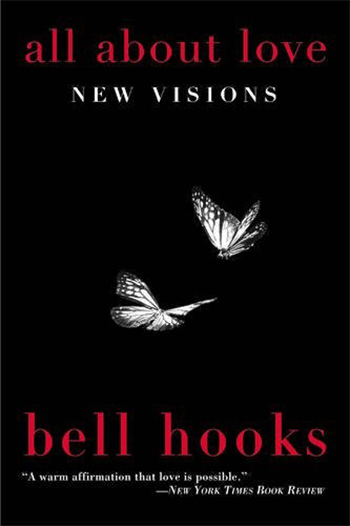 all about love: new visions
all about love: new visions
bell hooks
All About Love offers radical new ways to think about love by showing its interconnectedness in our private and public lives. In eleven concise chapters, hooks explains how our everyday notions of what it means to give and receive love often fail us, and how these ideals are established in early childhood. She offers a rethinking of self-love (without narcissism) that will bring peace and compassion to our personal and professional lives, and asserts the place of love to end struggles between individuals, in communities, and among societies. Moving from the cultural to the intimate, hooks notes the ties between love and loss and challenges the prevailing notion that romantic love is the most important love of all.
CAROLINE M. WILLIAMS
Associate Professor, Evolutionary Physiology
Department of Integrative Biology
This book is part of the 2022 Berkeley Summer Reading List. Stay tuned for more weekly posts!
Summer reading: Gordo
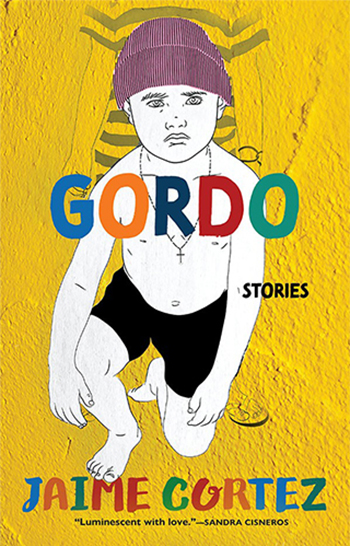 Gordo: Stories
Gordo: Stories
Jaime Cortez
Gordo is a collection of short stories which intimately describe the world of a migrant workers camp near Watsonville, California in the 1970s. Through his memorable cast of characters, Cortez explores the complexities of growing up Mexican American in California with humor and with a deep sincerity. The book confronts the difficulties of simultaneously belonging and not belonging in this country, a relatable experience that radiates far beyond Watsonville, California.
CHRISTINA VELAZQUEZ FIDLER
Digital Archivist
The Bancroft Library
This book is part of the 2022 Berkeley Summer Reading List. Stay tuned for more weekly posts!
Summer reading: Interior Chinatown
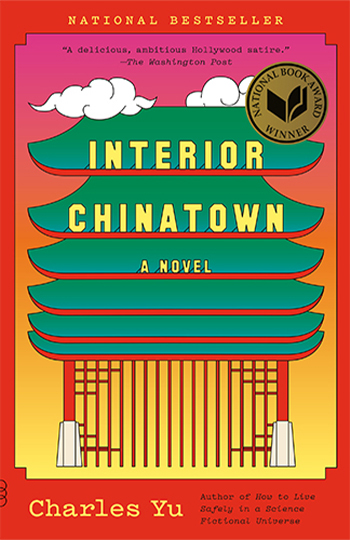 Interior Chinatown
Interior Chinatown
Charles Yu
In this genre-bending book, all the world’s a stage, and all the people merely players. Some have named, starring roles. Others are limited to non-speaking background roles such as Ethnic Recurring, Generic Asian Man Number Three, and Delivery Guy. Such are the roles available to our protagonist, Willis Wu, whose highest aspiration is to become Kung Fu Guy. By the end of the book, Willis comes to recognize the invisible, historical forces circumscribing his world, and struggles with what it would mean to break free and go off-script—and invites us to do the same. One of our student reviewers for the 2022 On the Same Page program praised Interior Chinatown for its “unique and compelling examination of Asian-American identity and media representation.” Another student reviewer described the book as “storytelling like I have never seen or read before.” Exploring an American history of immigration, marginalization, assimilation, racism, and mass media, Interior Chinatown asks, “Who gets to be an American? What does an American look like?”
AILEEN LIU
Director of Curricular Engagement Initiatives
College of Letters & Science
This book is part of the 2022 Berkeley Summer Reading List. Stay tuned for more weekly posts!
Better together: How the University of California’s libraries are uniting for a shared print future
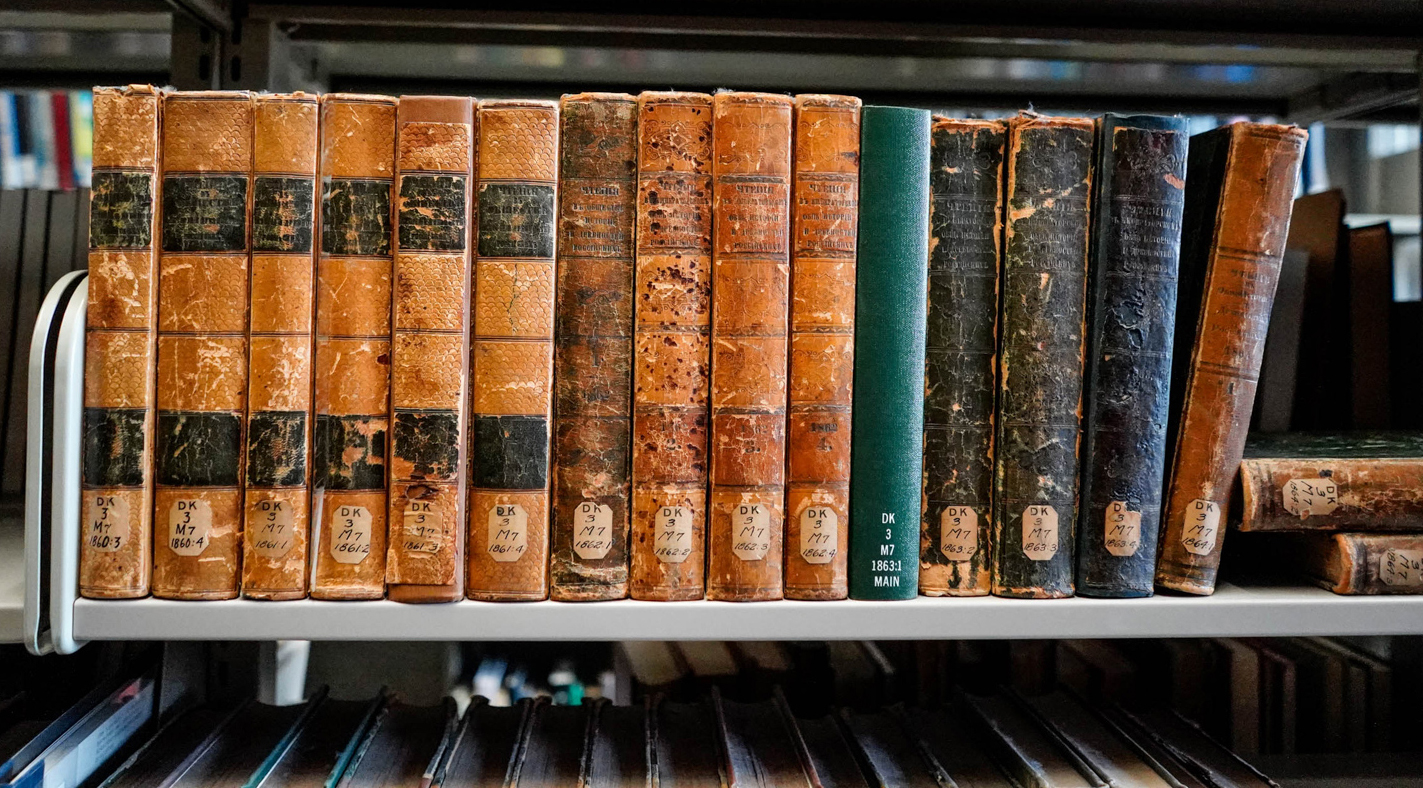
The UC Berkeley Library has recently embarked on an outreach effort to spread the word about the University of California libraries’ shared print strategies program to departments, institutes, and centers across campus.
This program is not new and has been active for a number of years. Contacts at the California Digital Library’s Shared Print Strategy Team and UC campuses have provided this information to local campus contacts as well as UC system faculty committees, including the Berkeley Division of the Academic Senate’s Committee on the Library, or LIBR; the University Committee on Library and Scholarly Communication, or UCOLASC; and the Systemwide Library and Scholarly Information Advisory Committee, or SLASIAC. The focus of the outreach is to convey that UC’s libraries are more interconnected than ever with one another, and with academic libraries across the country whose print collections augment and complement our own. This interconnectedness affords us an opportunity to redouble UC libraries’ efforts to engage in systematic and collaborative planning around print collection development and management.
The strategic goals are:
- Preserving print resources to ensure the ongoing availability and integrity of that content.
- Facilitating seamless discovery and access to content.
- Enabling the collection of and access to more and unique content.
Even though our work is largely invisible to you, the UC Berkeley Library wanted to share some basic information around the UC shared print strategy.
Please see:
In addition to preserving print resources and content for future generations, the program provides access and discovery within UC libraries’ collections as well as enables the exploration of unique content beyond our collections.
If you have questions about the UC shared print strategy, please email scholarly-resources@lists.berkeley.edu. We look forward to hearing from you and answering any questions you have as we continue to innovate around developing and providing access to print collections for current and future UC faculty and students.
Love data? Join us for Love Data Week 2022, Feb. 14-18!
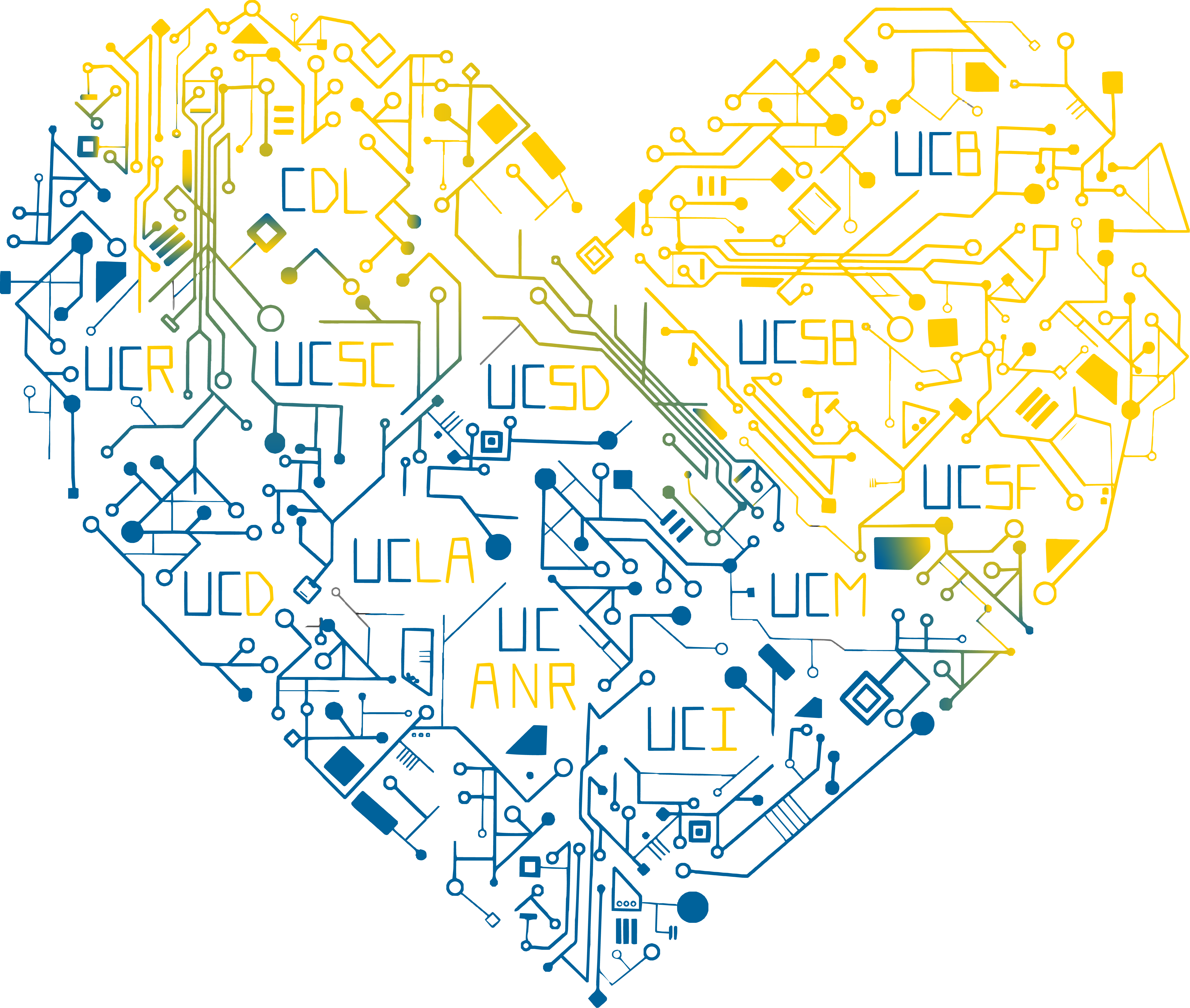
Once again, UC Libraries are collaborating on a UC-wide Love Data Week series of talks, presentations, and workshops Feb. 14-18, 2022. With over 30 presentations and workshops, there’s plenty to choose from, with topics such as:
- How to write effective data management plans
- Text analysis with Python
- How and where to share your research data
- Geospatial analysis with R and with Jupyter Notebooks
- Data ethics & justice
- Cleaning and coding data for qualitative analysis
- Software management for researchers
- An introduction to databases for newspapers and social science data
- 3-D data, visualization, and mapping
All members of the UC community are invited to attend these events to gain hands-on experience, learn about resources, and engage in discussions about data needs throughout the research process. To register for workshops during this week and see what other sessions will be offered UC-wide, visit the UC Love Data Week 2022 website.
Call for comment: Pamela P. Fong Optometry and Health Sciences Library
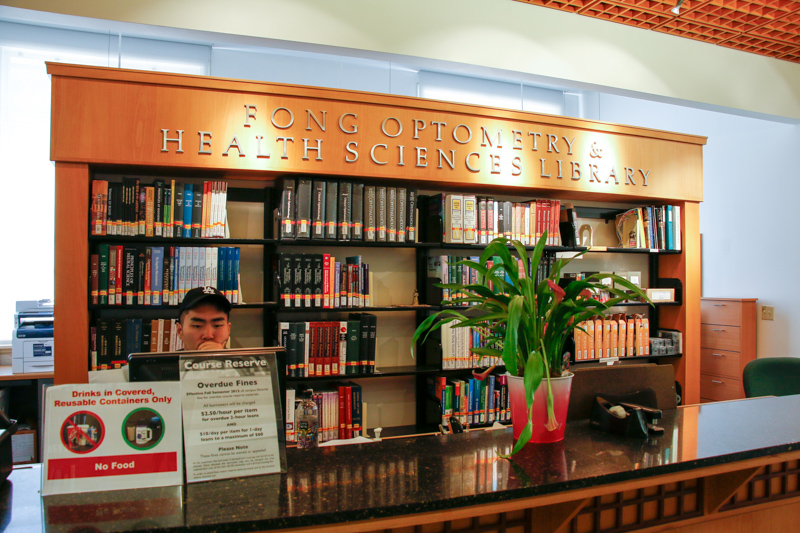
A call for comment issued this week by University Librarian Jeffrey MacKie-Mason and John Flanagan, dean of the School of Optometry, encourages all interested parties to carefully read the proposed plan for the Pamela P. Fong Optometry and Health Sciences Library at UC Berkeley and to submit comments and recommendations for consideration. All suggestions will be given consideration; most helpful are ideas that take into account the academic and scholarly needs of students and faculty at UC Berkeley and enhance the mission of the Library and the university.
The comment period is open through November 18, 2021. We invite you to submit comments via email to libraryforum@lists.berkeley.edu.
Under the proposal, the Optometry Library space will be transferred to the School of Optometry to enhance its teaching and learning space, and the Optometry Library’s services and collections will be combined with those of the Bioscience, Natural Resources & Public Health Library.
By turning the Optometry Library space permanently over to the School of Optometry, the call for comment states, the school will be able to expand its student study and meeting room spaces and provide patrons with longer hours of access. By bringing Library staff together in one location, the Library can offer optometry students, faculty, and staff better-supported operations and services.
Summer reading: Caste: The Origins of Our Discontents
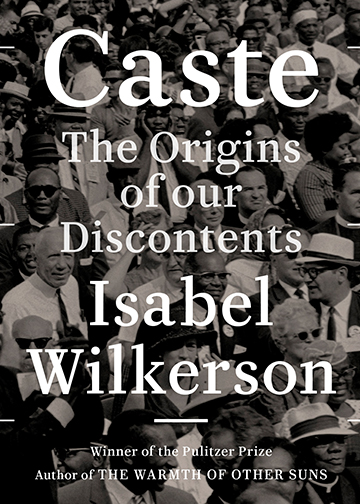 Caste: The Origins of Our Discontents
Caste: The Origins of Our Discontents
Isabel Wilkerson
Isabel Wilkerson artfully weaves individual experiences and historical events, as well as data and scholarship, to re-see the artificial social construct of race as the visible manifestation of an invisible caste structure. As she notes, “Caste is the bones, race the skin.” Wilkerson lifts our gaze by offering possible solutions for the undoing of this centuries-old system of dehumanization, which continues to do harm through both passive and active enforcement by those who benefit from the structure. I also highly recommend the audiobook recording, as read by Robin Miles.
GISÈLE TANASSE
Film & Media Services Librarian
Media Resources Center
That’s it for this year’s Summer Reading List! View this book on Overdrive. Tune in again next year for more recommendations!
Summer reading: Neon Vernacular: New and Selected Poems
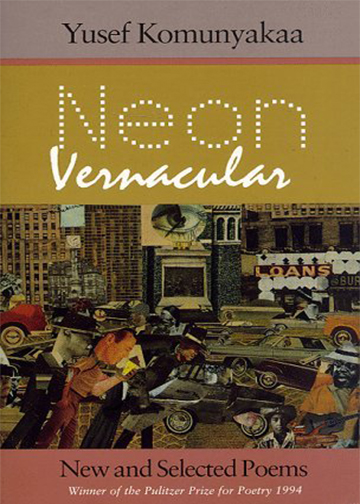 Neon Vernacular: New and Selected Poems
Neon Vernacular: New and Selected Poems
Yusef Komunyakaa
In this Pulitzer Prize-winning collection, Yusef Komunyakaa interweaves history and memory. With inventive language and raw emotion, Komunyakaa tackles varying subjects from the Vietnam War, to the Jonestown massacre, to jazz greats, to his childhood in Bogalusa, Louisiana. As readers, we embed with soldiers in Vietnam (“we held our breath,/ready to spring the L-shaped/ambush, as a world revolved/under each man’s eyelid”); we mourn the passing of Thelonious Monk (“Tonight’s a lazy rhapsody of shadows/swaying to blue vertigo/& metaphysical funk”); and we witness, from a son’s point of view, his complicated relationship with his father: a man who uses “wire/& sunlight to train/The strongest limbs,” who “hated my books,” but who “steered us through the flowering/Dogwood like a thread of blood.” Komunyakaa challenges us to gaze with unflinching clarity and deep introspection at the past—of singular people and of the nation–and to fashion guides for moving forward from what we observe and learn. “Hard love, it’s hard love,” he writes in Copacetic Mingus, and reminds us, as he closes Corrigenda, “If you must quote me, remember/I said that love heals from inside.”
LUISA GIULIANETTI
Curriculum Coordinator
Centers for Educational Equity and Excellence (CE3)
This book is part of the 2021 Berkeley Summer Reading List. View this book on Overdrive. Stay tuned for more weekly posts!
Library tours, August 25 – 27

Get your library bearings with a 3-in-one tour of the historic Doe Library, the ever popular Moffitt Library, and the underground Main Stacks. We’ll visit these central libraries and get acquainted with the support provided. Tour starts on the north steps of Doe Memorial Library.
Tour dates and times:
Wednesday 8/25: 11am-12pm & 2-3pm
Thursday 8/26: 11am-12pm & 2-3pm
Friday 8/27: 11am-12pm & 2-3pm
20 students per tour with 2-3 tours offered per time.